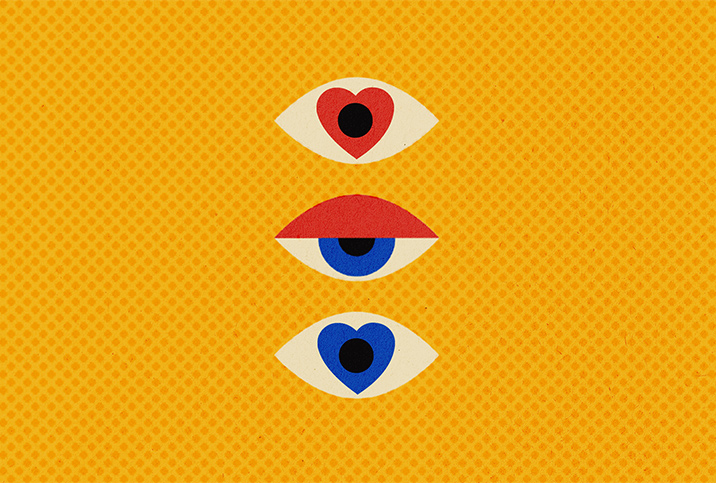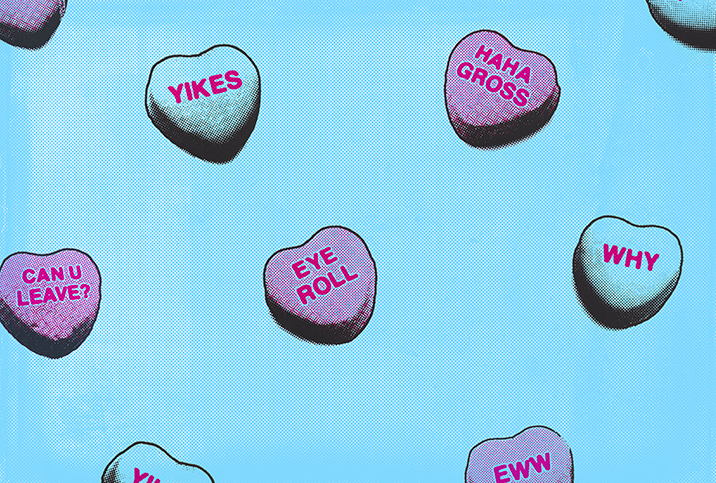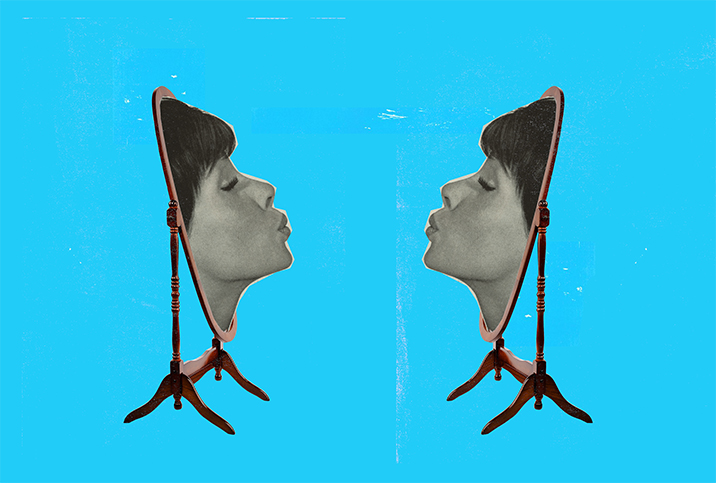What Is the Science Behind Love—and Lust—at First Sight?

Your eyes meet across a crowded room. Time stands still. As you stare deep into each other's eyes, it feels as if you've known this person your entire life. You're simply choosing them again, as you've done in all your lifetimes before. Butterflies swarm in your stomach. "Lover" by Taylor Swift swells. This is it: love at first sight.
Record scratch. Is this really love or is it all in your head?
The chemicals responsible for love at first sight
The feeling of love (or really, lust) at first sight comes from a chemical reaction in the brain which can be triggered by attraction. This neurochemical process happens when your body releases adrenaline, dopamine and serotonin, in addition to testosterone and estrogen, said Clarissa Silva, a behavioral scientist and relationship coach in New York City.
As for the butterflies fluttering around in your stomach? Turns out this feeling is from increased adrenaline levels, which can make you sweat, your heart race and lead to the feeling most people associate with love at first sight. But this phase of euphoria lasts only a few months, also known as the honeymoon stage, Silva said.
That's the science behind what causes the immediate reaction that's either lust or love.
Love isn't blind
If you feel like you are falling in love with someone you just met, there's a good chance this connection is based solely on physical attraction.
"[Since it's] primarily based on physical attractiveness, lust and increasing chemical production of estrogen and testosterone, coupled with the 'feel-good' hormones released by the brain of dopamine and norepinephrine, these chemicals create a feeling of euphoria and being in love," said Chase Cassine, a licensed clinical social worker in New Orleans. "Thus, these contributing factors create a supernatural sense that you've found the one."
How quickly can you really fall in love?
A 2010 meta-analysis by Syracuse University professor Stephanie Ortigue suggested falling in love takes about a fifth of a second. But this doesn't mean you'll stay in love with that person.
"The neurochemical process of 'falling in love' is intoxicating," Silva explained. "The chemical intoxication is momentary and dissipates over time, but feels intense in that moment. While the neurochemical reactions can take seconds, actual compatibility takes longer to determine. Our decision-making around what our ideal type is also can take months to years to determine."
The problem with an instant connection
Some experts don't think "love at first sight" is really love.
"Some couples who fall in love at first sight go on to having healthy relationships and marriages. For others, when the physical attraction wanes due to lack of emotional and lifestyle compatibility, it can be attributed to lust at first sight," said Julie Spira, an online dating expert and coach based in Los Angeles.
"I believe the feeling of falling in love at first sight, in reality, is a feeling of infatuation," Spira added. "It's easy to get carried away and project to the future that this person is the one, when in fact, you don't have the history with the person to know if you can enter a relationship that will go the distance or not."
Love at first sight doesn't always lead to lasting love because there are multiple facets to a relationship.
"Attraction is a core component of any relationship but it is not the only core component," noted Match's chief dating expert, Rachel DeAlto, from New Jersey. "Similarities in values and overall compatibility of lifestyle and life goals are equally important."
Is love at first sight all in your head?
It's possible the instant attraction you're feeling is happening because you want it to happen.
"Sometimes the idea of being in a relationship has more value to us than compatibility in the relationship, equity in the relationship or just plain happiness," Silva said. "The idea can create illusions that you're falling in love or in a healthy relationship because it is what we choose not to see."
You may be compensating for elements that are missing in the person, and it's easy to idealize someone when you're lusting after them.
The slow burn
If your first date wasn't all fireworks and butterflies, can you eventually grow to fall for that person? Simply put, yes, as long as you keep your heart and mind open.
"Sometimes chemistry is not there initially, but as time progresses with getting to know more about each other, the chemistry can gradually build and just like that the spark is ignited," Cassine explained.
"Attraction is subconscious and nearly instantaneous in terms of physicality," DeAlto added. "However, attraction can also grow when people take the time to invest in getting to learn someone's personality. If you are open to getting to know them, you can grow to care about them as a person, which often leads to a physical attraction growing over time."
Is it really love or do you just have a type?
When we think we're falling in love at first sight, or someone feels familiar and comfortable to us, it's often because we are once again falling for our same physical type. So if you meet someone who isn't your usual type, you might not feel a spark at first. But wait for it.
"[People] end up falling in love with a best friend, with whom they didn't see an initial physical attraction but eventually realize that friendship was the glue for bonding towards a long-term relationship," Spira said.


















